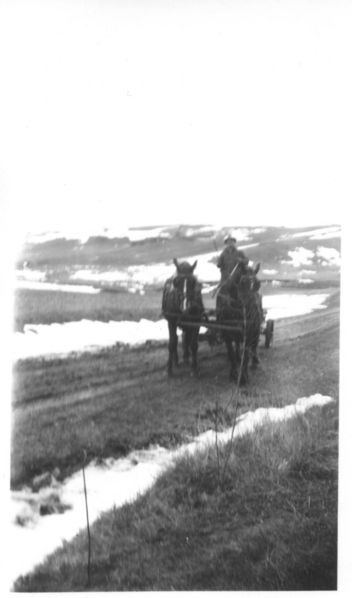
Pair of horses pulling a steel-wheeled cart in winter; appears 1930s.
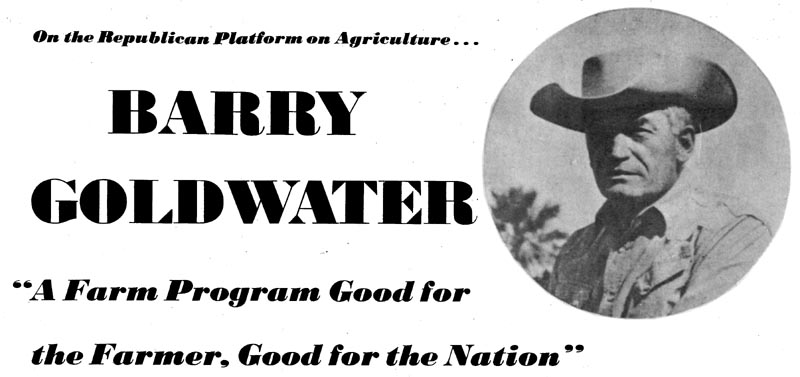
A Republican presidential candidate from Arizona can’t lose, can he? Barry Goldwater stepped down from his seat in the Senate to run for president against LBJ…but was defeated in one of the worst landslides in history. He garnered only 52 electoral votes, compared to LBJ’s four-hundred-eighty-six. Make sure you get out and vote today, and let’s remind McCain what we think of Arizona Republicans.
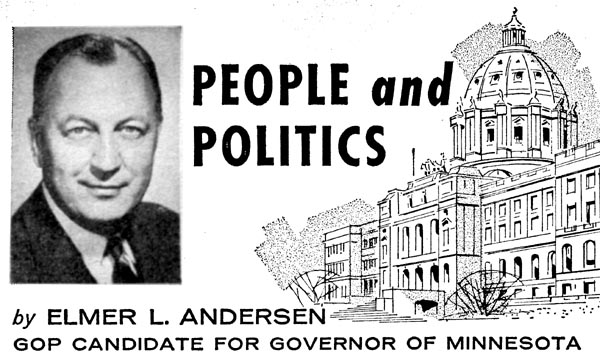
In 1960, Elmer was on the GOP ticket for Governor of the state of Minnesota. A few short weeks after he published this ad in The Farmer magazine, he won his bid, starting a controversy-free term in charge of the state. Two short years later, however, he was undone by 91 voters: in an extremely close election, he lost out to Farm-Labor candidate (and his Lieutenant Governor) Karl Rolvaag. Despite his Republican heart, Andersen was a self-proclaimed liberal to the end, even endorsing John Kerry during the 2004 election. Andersen passed away shortly thereafter.
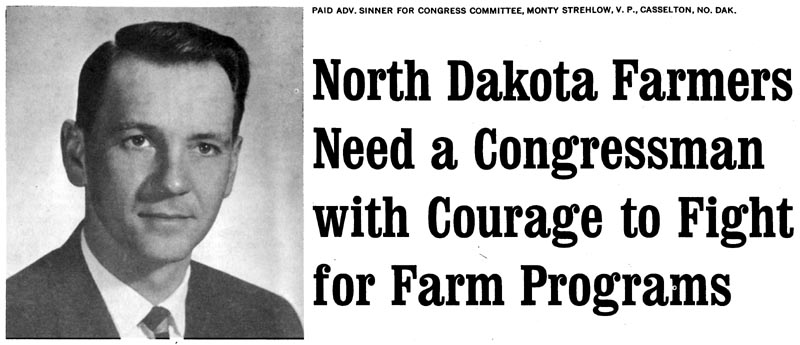
In 1964, a fresh state senator from Casselton, ND, made an attempt to move up the ladder and join Senator Quentin Burdick in Washington D.C.. Unfortunately, State Senator George Sinner was beat out by Republican Mark Andrews. Sinner’s attempt at Congress was barely a speed-bump in his career: after working with a variety of local and regional governments and organizations, he became Governor of North Dakota from 1985 to 1992.
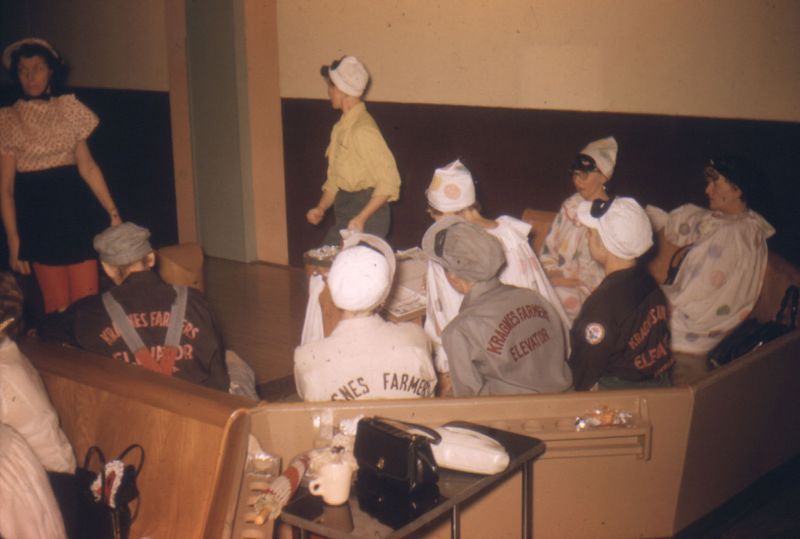
On the evening of October 31st, 1960, the gals from the bowling league got together and tossed the balls a few times. Being Halloween, they couldn’t go without a costume, of course: some made due with just a black mask, but others got into it more. I see a couple clowns, a railroad engineer, and a Bo Peep.
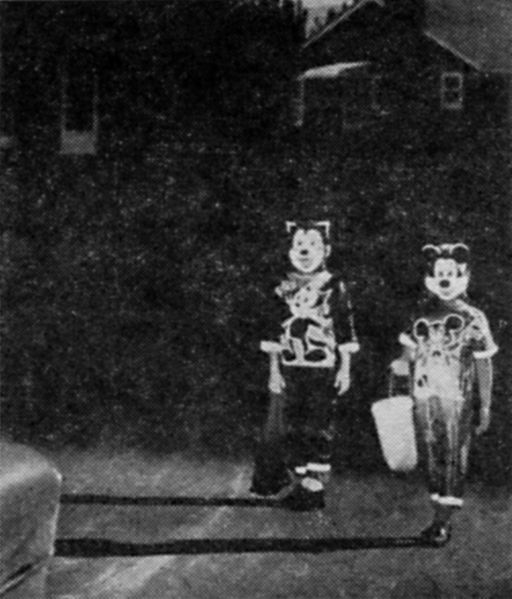
Felix the Cat and Mickey Mouse have been ‘reflectorized’, according to this article from 1960 on Halloween safety. You may think your parents were the first ever to be so lame as to worry about cars running over little Batmans and princesses on your neighborhood streets, but the worry has been around about as long as cars (but probably moreso about the time the suburbs began to flourish). My only thought about this picture is that it doesn’t actually depict Halloween: in order to be included in the October 15th issue, the article and photo probably had to be in to the publisher by the 1st, and with photo developing time the picture was probably taken sometime in September. Imagine you’re the two kids, dressed in your Halloween costumes a month early, walking around your neighborhood decked out in high-reflective tape, during the first couple weeks of school. Downright embarrassing.
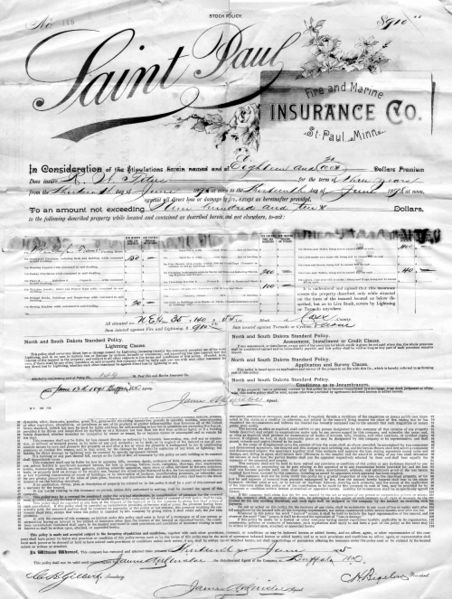
A hundred and thirteen years ago, R.U. Titus stood in his farmyard and looked upwards, wondering what sort of terror might plunge out of it — lightning, tornadoes — and decided he should buy some insurance on him home, horses, and farm equipment. Today, whoever still lives at the farmstead on the NorthEast quarter of Township 140, Range 55, Section 35 looks up and wonders just how much resolution those terrain sattelites can get:
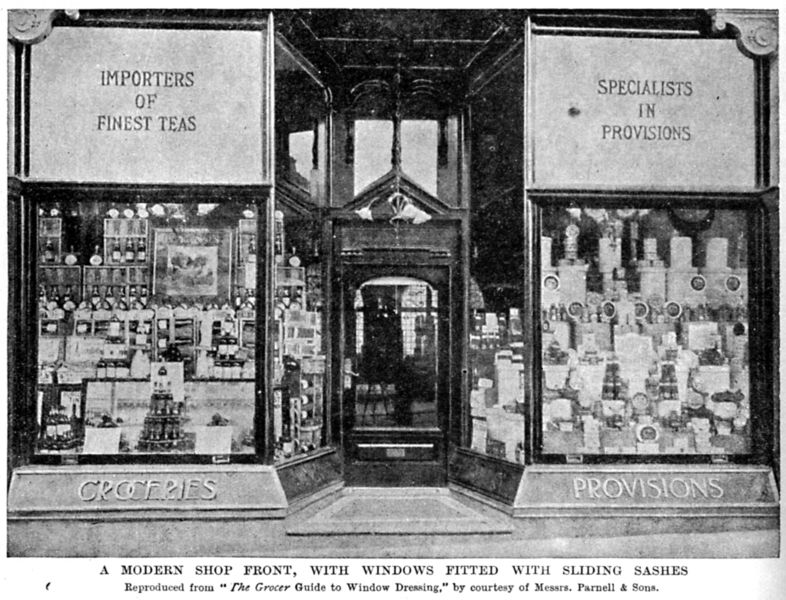
Caption reads, “A modern shop front, with windows fitted with sliding sashes.” The ‘sashes’ are the front two large-paned windows facing the street (the grips are visible along the bottom edge of the window). The sash is fitted with a sash-weight to counteract the enormous weight of a sheet of glass this size. The sash slides upward to open, allowing street-side sale of groceries during times when the weather allows and closing up during inclement weather.
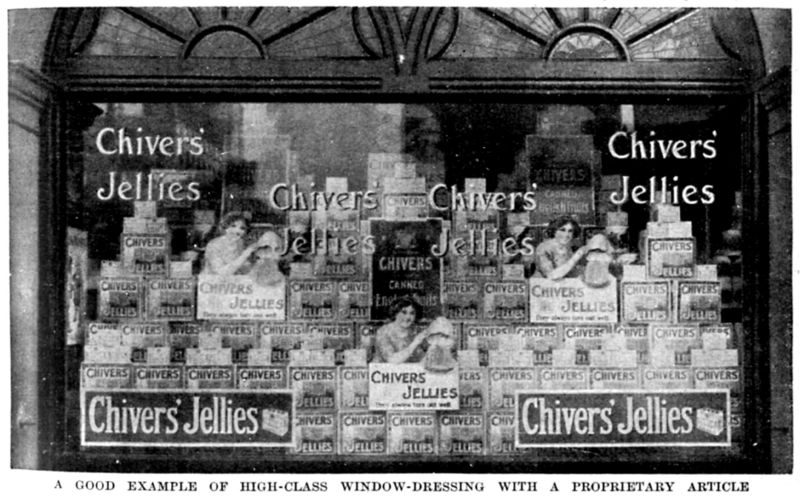
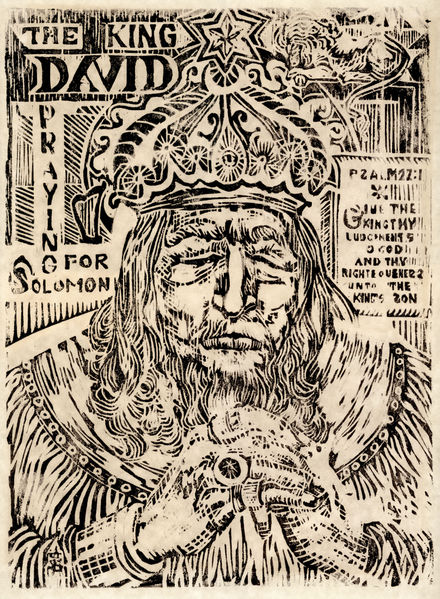
The King David Praying For Solomon, a woodcut by Shirley Swenson. Note the reversed letters on the right (would be the left side of the printblock). The print is not dated nor numbered, but it is quite clearly an original hand-printed piece of art. The size of the woodcut was huge — 13″ x 18″, and carries enormous detail. It was poorly mounted in a cheap frame, and the materials used seem to date to the 70s or 80s. According to a note on the back, Shirley Swenson was the daughter of Cora Swenson of Libby, Montana. No other information is available. We purchased it for $15 at the Moorhead Salvation Army thrift shop.